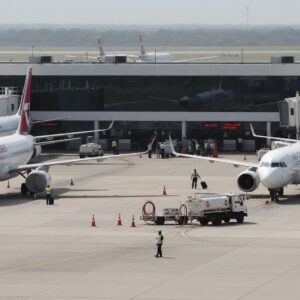Airlines face a dilemma as they strive to meet climate targets: who will pay for the necessary operational changes? It seems likely that passengers will have to foot some of the bill, leading to a potential 22% increase in airfares.
To reduce carbon emissions, the industry needs to rethink how planes operate. One solution is to switch to sustainable aviation fuel. Speaking at a recent Bloomberg conference, Willie Walsh, the director general of the International Air Transport Association (IATA), acknowledged that sustainable aviation fuel could bring about a 65% reduction in emissions. However, he admitted that it is unclear who will cover the cost of developing this fuel.
Given the current economic climate, it is unlikely that airlines will be able to absorb these costs entirely. Instead, consumers may have to shoulder the burden. Walsh believes that “there’s just no way around it.” With many countries already imposing carbon taxes on air travel, rising airfares could become an inevitable reality.
The airline sector is facing significant pressure to achieve the challenging goal of net zero emissions by 2050. While this is a significant task, the industry is exploring other methods of reducing emissions. Some of these methods include decreasing the number of flights and optimizing routes for greater efficiency. Furthermore, some airlines are encouraging pilots to slow down to save on fuel and minimize emissions.
The International Council on Clean Transportation has predicted that decarbonizing the airline industry could require an investment of as much as $1 trillion. To achieve this, ticket prices may increase significantly by 2050, potentially by as much as 22%. This means that the cost of decarbonization will likely be borne by consumers, and airlines may need to find new and innovative ways to make air travel more affordable while still addressing their environmental obligations.

















More Stories
Canada’s Airlines Halt Cuba Flights: Fuel Crisis Explodes
United’s A321neo Coastliner: Premium Transcon Revolution
US Airlines Battle for 2026 Skies: Premium Profits Soar